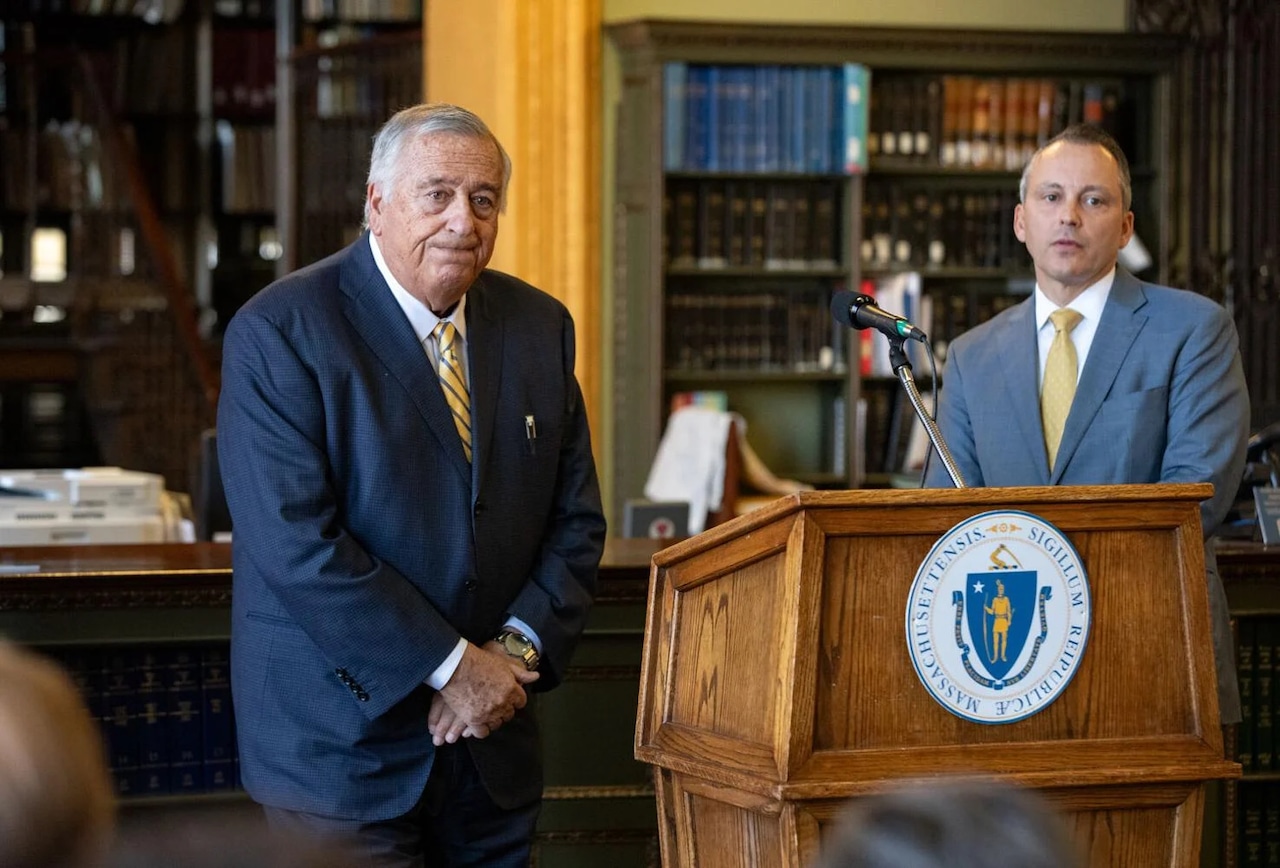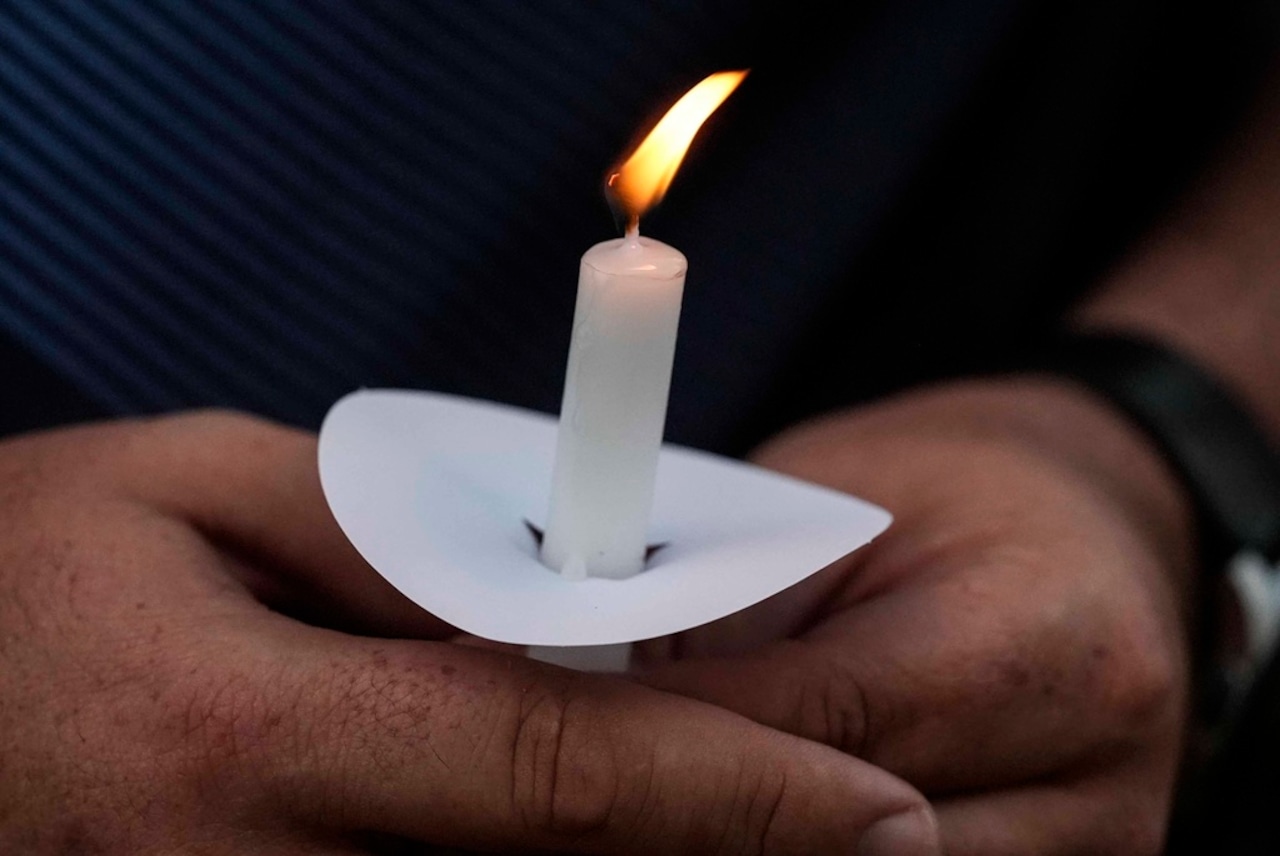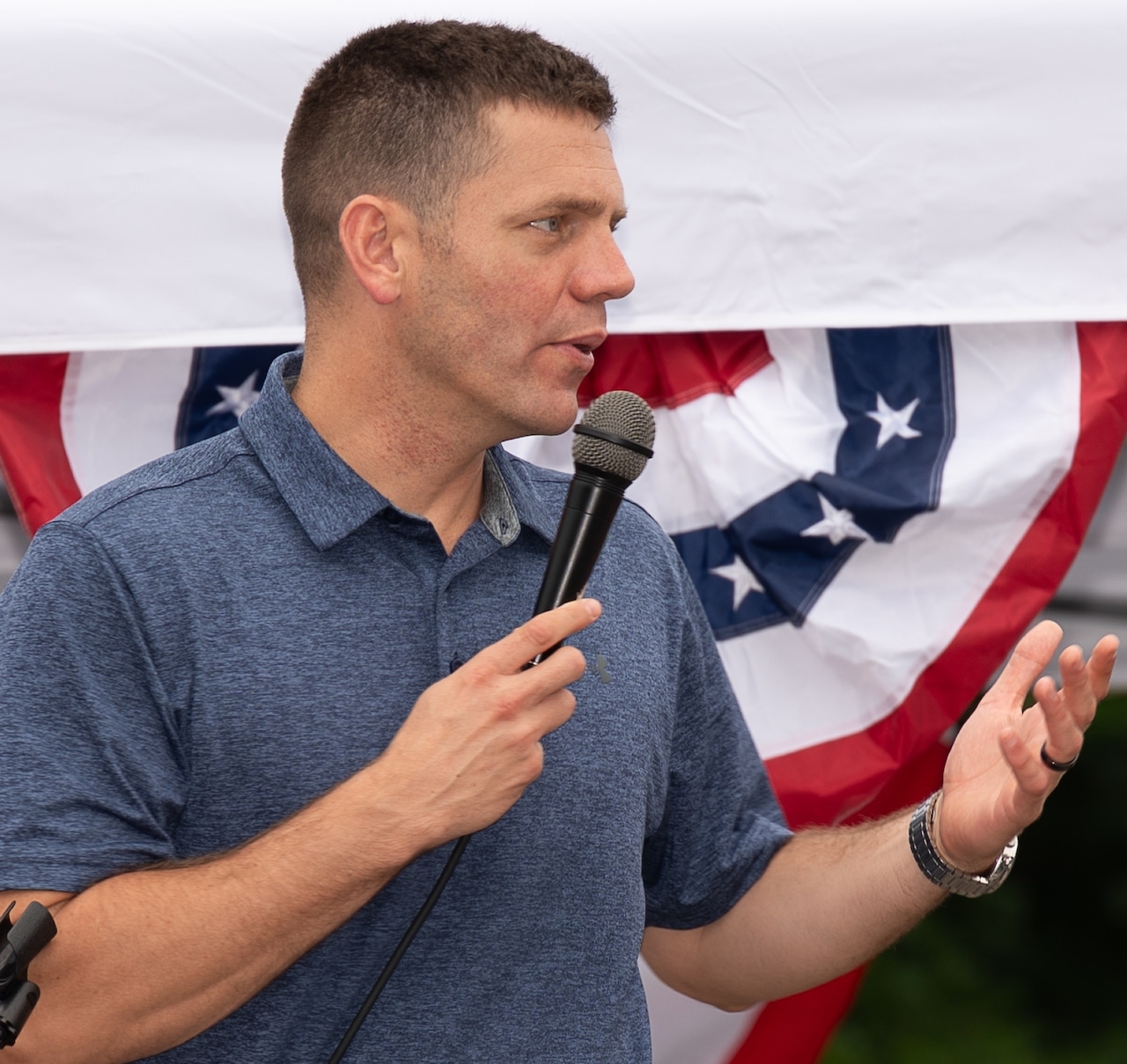
It’s budget season in Massachusetts. And things are about to get complicated — really, really complicated.
Here’s why.
Democrats who control the state House are slated to start voting this week on their version of a $57.9 billion budget for 2024-25, that shares some of the same spending priorities as the $58 billion fiscal blueprint that Gov. Maura Healey, also a Democrat, unveiled in January.
At the same time, legislative negotiators are meeting behind closed doors as they try to reach a deal on a supplemental funding bill for this year that would provide a badly needed injection of cash for the state’s emergency shelter system. The legislation also would impose some limits on how long people can stay in the system.
Lending some urgency to the latter: The fact that the system, which serves both permanent Massachusetts residents and an ongoing flood of migrant arrivals, could run out of money as soon as the end of the month without action, Senate Ways & Means Committee Chairperson Michael Rodriques, D-1st Bristol/Plymouth, has warned.
Now throw in one more variable: Democrats who control the state Senate have yet to roll out their own spending proposal. That could come next month.
The specifics there are unknown. But the upper chamber’s senior leader, Senate President Karen Spilka, D-Middlesex/Norfolk, did tip her hand a bit thanks to a speech she gave to business leaders in Boston on Monday.
And all of this begs one big question: Can the Legislature, which has a troubling habit of leaving things until the absolute last minute, get it all done on time?
If there’s an upside to the debate over the short-term funding bill, it’s that there’s a deadline — of sorts — and something approximating movement.
Rodriques, the Senate’s top budget-writer, has said talks are ongoing, but offered little in the way of specifics on a potential timeline, according to Politico’s Massachusetts Playbook.
“We are literally in communication constantly … It’s going well. We’re having good conversations,” Rodrigues said, according to the online news organization.
In an interview with WBUR’s “Radio Boston” program on Tuesday, Healey wouldn’t be nailed down on a deadline on when the system might run out money. But she did she say “know[s] the Legislature is working very, very hard on this.”
“[For] the last several months, this has been a significant issue,” Healey told the station, falling back on a familiar call for action from Washington. “And I have spoken with great urgency about the need for more funding.”
Away from the question of funding for the shelter system, there’s still the question of the differences in the budget plans that Healey and House Democrats have proposed for the coming year.
House Democrats embraced many of Healey’s ideas for new sources of money to bulk up overall spending in the face of flagging tax collections, according to State House News Service.
Both budgets would green-light legalization of online lottery sales, draw from trust funds previously established to cover the costs of K-12 and early education, restructure MassHealth assessments, approve tax modernizations and amnesty, and redirect gaming revenues to help cover state outlays, albeit with some differing amounts and estimates.
Notably, House Democrats lowballed Healey on funding for a new MBTA program that provides half-priced fares to low-income riders. Healey wants $45 million for the program. House Democrats allocated $20 million, MassLive previously reported.
House Democrats also have called for a different split on spending an anticipated $1.3 billion in revenue from the so-called “Millionaire’s Tax,” earmarking $695 million for schools and $605 million for transportation, a 53%-47% split, compared to the $750 million and $550 million eyed by Healey.
Healey, at least, didn’t seem discouraged about the possibility of a deal with House leaders.
The Democratic governor told WBUR that she was “really heartened by what the House came forward with. There is a lot of alignment with what we’re trying to do.”
Then there’s the Senate.
Speaking to business leaders on Monday, Spilka, the Senate leader, spelled out an agenda that includes her long-sought free community college for all, and a new public-private partnership to expand access to childcare, WBUR reported.
“If we want a generation of students to benefit from the terrific programs at our many community colleges across the state, we must remove as many barriers to entry as possible,” Spilka said, in remarks prepared for delivery. “Free is a lot easier to understand than: it will be free for you if have the time, support of adults, and language capabilities needed to fill out these many complicated forms.”
It could be harder for the administration and lawmakers to get some of their bigger-ticket items over the goal line in the face of flagging tax collections that have prompted both spending cuts and hiring restraints across state government.
Speaking to business leaders on Monday, Spilka acknowledged the challenging terrain, but she insisted policymakers had a responsibility to act.
“Now, some would say that because of the challenges we face as a Commonwealth, we have to scale back our ambition to tackle some of our most persistent challenges,” Spilka said in remarks prepared for delivery. “But I would argue that now is not the time to pull back on the critical investments that have been—and will continue to be—beacons of hope and opportunity for our residents.”
Healey demurred on Tuesday, when she was asked whether she had a message for Senate leaders ahead of the eventual release of their spending plan.
“I look forward to working it through over the next several weeks and months,” Healey said.






